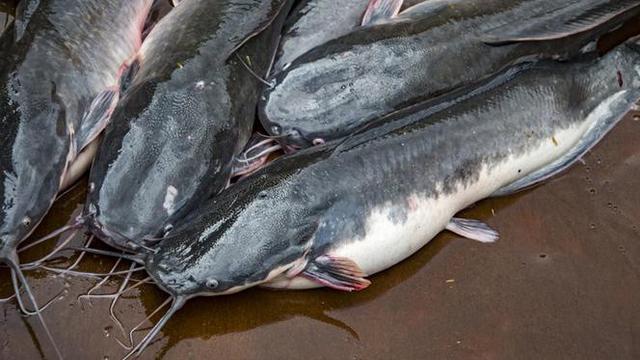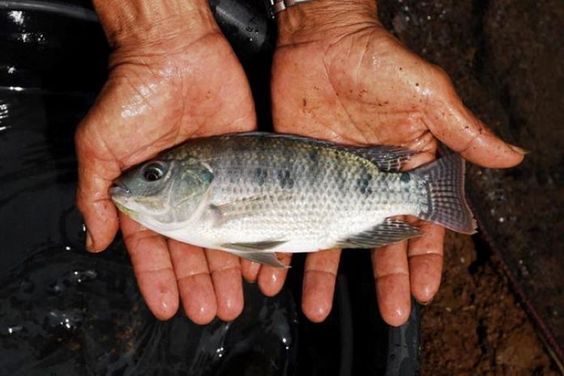All About Organic Tilapia: Diving Deep into Sustainable Seafood
Organic Tilapia, a mild-flavored and versatile freshwater fish, has become a popular seafood choice due to its affordability and ease of preparation. But with growing concerns about environmental impact and responsible aquaculture, consumers are increasingly seeking out organic tilapia.
In this comprehensive guide, we’ll explore the world of organic tilapia, delving into what it means, the certification process, potential benefits, and considerations when making your next seafood purchase.
Contents
Demystifying Organic Tilapia: What Does It Mean?
Unlike organic produce regulations, there’s currently no official USDA certification for “organic” seafood in the United States. However, the term “organic aquaculture” refers to specific farming practices that prioritize:
- Natural Feed: Organic tilapia are fed diets free from synthetic growth hormones, antibiotics, and genetically modified organisms (GMOs). Their feed typically consists of certified organic plant-based ingredients like algae, soy, and grains.
- Water Quality: Organic tilapia farms maintain clean water conditions through practices like biofloc technology, which utilizes natural microorganisms to break down waste products. This reduces reliance on harsh chemicals and promotes a healthier aquatic environment.
- Stocking Density: Organic farms typically raise tilapia in lower densities compared to conventional methods. This allows for better water quality, reduced stress on the fish, and promotes their natural behaviors.
- Habitat Preservation: Organic aquaculture often emphasizes sustainable practices that minimize harm to surrounding ecosystems. This may include using native plant species around ponds or minimizing water usage.
Important Note: While the term “organic” isn’t officially used for seafood in the US, some countries like the European Union do have established standards for organic aquaculture. Additionally, some independent organizations in the US offer certifications for responsibly raised fish that adhere to similar principles as organic production.
Unveiling the Benefits of Organic Tilapia
Choosing organic tilapia offers several potential advantages:
- Reduced Exposure to Chemicals: By avoiding synthetic ingredients in their feed and minimizing reliance on chemical water treatment, organic tilapia may have lower levels of antibiotics, hormones, and other potentially harmful substances.
- Improved Water Quality: Organic farming practices promote cleaner water conditions in aquaculture ponds, benefiting both the fish and the surrounding environment.
- Potential Health Advantages: While research is ongoing, some studies suggest that organic fish may have higher levels of omega-3 fatty acids and lower levels of unhealthy fats compared to conventionally raised fish.
- Sustainable Choice: Organic aquaculture practices can contribute to a more sustainable seafood industry by minimizing environmental impact.
Understanding the Considerations: Is Organic Tilapia Right for You?
While organic tilapia offers potential benefits, there are also some factors to consider:
- Availability and Price: Organic tilapia may be less readily available and more expensive than conventionally raised fish.
- Limited Certification: As mentioned earlier, the lack of official “organic” certification for seafood in the US can make it challenging to verify claims. Look for certifications from reputable independent organizations if this is a priority.
- Overall Diet: Organic tilapia can be a healthy choice, but it’s important to include a variety of protein sources in your diet for well-rounded nutrition.
If you’re interested in trying organic tilapia, here are some tips:
- Look for Certifications: Search for tilapia raised according to standards set by independent organizations like the Aquaculture Stewardship Council (ASC).
- Ask Questions: Talk to your fishmonger or grocery store seafood department about the origin and farming practices of their tilapia.
- Consider Alternatives: While organic tilapia offers benefits, other sustainably raised options like wild-caught fish or responsibly farmed varieties can also be good choices.
The Final Verdict: A Sustainable Seafood Choice
While there’s currently no official “organic” label for seafood in the US, tilapia raised according to organic principles offers a potentially healthier and more sustainable option for seafood lovers. By prioritizing responsible aquaculture practices, we can support a thriving fishing industry and contribute to a healthier planet.






